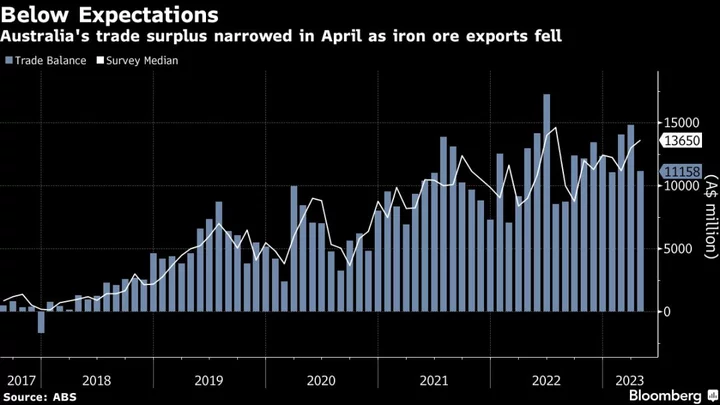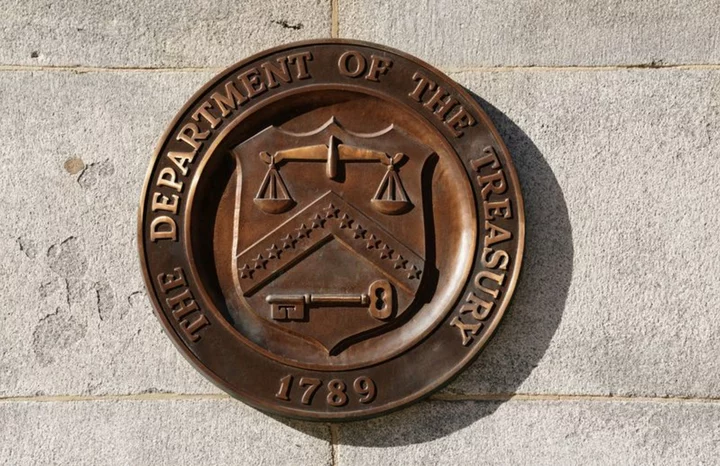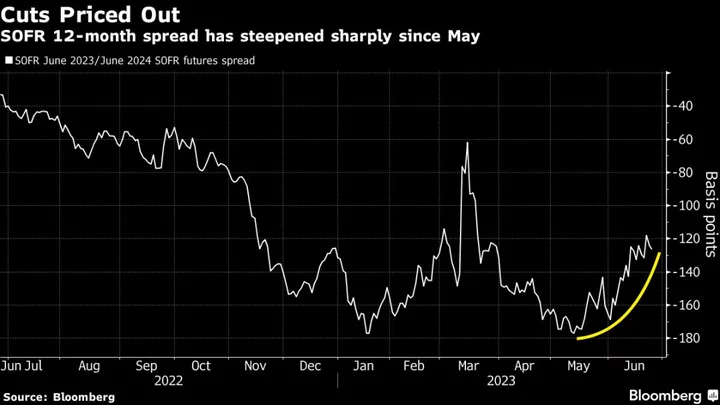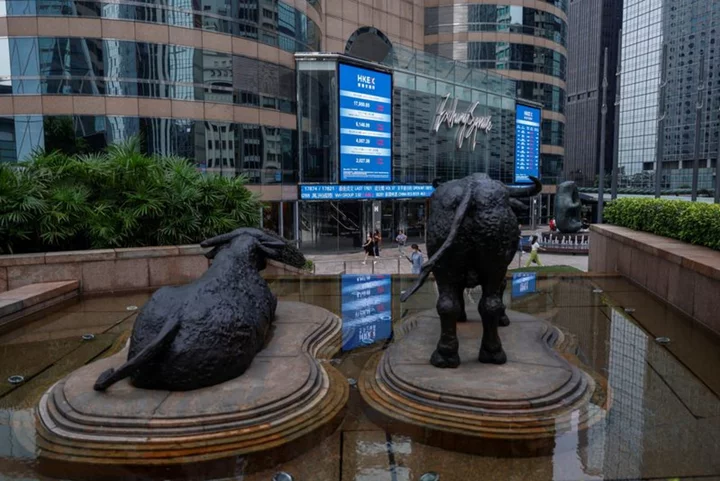By Ankur Banerjee
SINGAPORE Asian stocks fell on Tuesday as weak service sector data rekindled worries over China's sputtering post-pandemic economy, while the Reserve Bank of Australia kept interest rates unchanged, as expected, for a third month in a row.
MSCI's broadest index of Asia-Pacific shares outside Japan was 0.65% lower at 511.63, moving away from 515.37, the highest level since Aug. 11 it touched on Monday.
Futures indicated that the dour mood was likely to spread to Europe, with the Eurostoxx 50 futures down 0.21%, German DAX futures down 0.20% and FTSE futures 0.29% lower.
A recent rally in China shares, spurred by a spate of government measures to help boost the faltering economy, is quickly losing steam. The blue-chip CSI 300 Index fell 0.58%, while Hong Kong's Hang Seng Index slid 1.5%, after those markets clocked their best day in over a month on Monday.
The optimism quickly dwindled after a private-sector survey showed on Tuesday that China's services activity expanded at the slowest pace in eight months in August as weak demand continued to dog the world's second-largest economy and stimulus failed to meaningfully revive consumption.
"The miss in China's Caixin services PMI has offset some of the sentiment shift we got yesterday," said Charu Chanana, market strategist at Saxo in Singapore.
Still, investors are hoping that the drip feed of policy stimulus from Beijing will be enough to stabilise the Chinese economy.
"To be fair, China’s measures so far are a mere relaxation of over-regulation that can merely stop or slow down further damage, and not particularly stimulus actions that can reverse the damage," Chanana said.
"The hustle between weak high-frequency data and policy actions is likely to continue."
In a rare bit of good news for the crisis-hit Chinese property sector, a person close to Country Garden told Reuters the company has made interest payments on two U.S. dollar bonds just as a grace period was due to end on Tuesday.
The largest private property developer in China on Friday won approval from onshore creditors to extend a private bond worth 3.9 billion yuan ($536 million).
Australia's S&P/ASX 200 index fell 0.30%, while the Australian dollar shed 0.68% to $0.6421 after the country's central bank held rates at 4.10% and said recent data were consistent with inflation returning to the 2% to 3% target range in late 2025.
The RBA, chaired by outgoing Governor Philip Lowe, reiterated that some further tightening may still be needed to curb inflation. Lowe will hand over to his deputy Michele Bullock on Sept. 18.
"The decision to hold makes sense given the run of softer data for jobs, wages and inflation in the last month," said Shane Oliver, head of investment strategy and chief economist at AMP in Sydney.
Oliver said the RBA has already done more than enough to slow the economy and bring inflation back to target but warned that the risk of a recession is very high.
U.S. markets were closed on Monday for a holiday, leading to light trading volume. While the economic calendar in the region is bare, several Federal Reserve officials are due to speak during the week.
Data on Friday showed U.S. job growth picked up in August, but the unemployment rate jumped to 3.8%, while wage gains moderated. The slight cracks in the labour market further bolstered expectations that the Fed is likely done hiking rates.
Markets are pricing in 93% chance of the Fed keeping rates unchanged later this month, CME FedWatch tool showed, and has priced in about a 60% chance of no more hikes this year.
European Central Bank President Christine Lagarde said central banks must pin inflation expectations at their targets at a time when changes in the labour and energy markets as well as geopolitical turmoil cause some price swings.
"It will be critical for central banks to keep inflation expectations firmly anchored while these relative price changes play out," Lagarde told an event in London on Monday.
The market is now leaning against a hike at its September meeting after a run of soft data.
In the currency market, the dollar index, which measures the U.S. currency against six rivals, rose 0.086%.
The Japanese yen weakened 0.22% to 146.81 per dollar, still at the levels that led to intervention from Japanese authorities last year.
In commodities, U.S. crude rose 0.35% to $85.85 per barrel and Brent was at $88.86, down 0.16% on the day.[O/R]
(Reporting by Ankur Banerjee; Editing by Stephen Coates and Kim Coghill)









